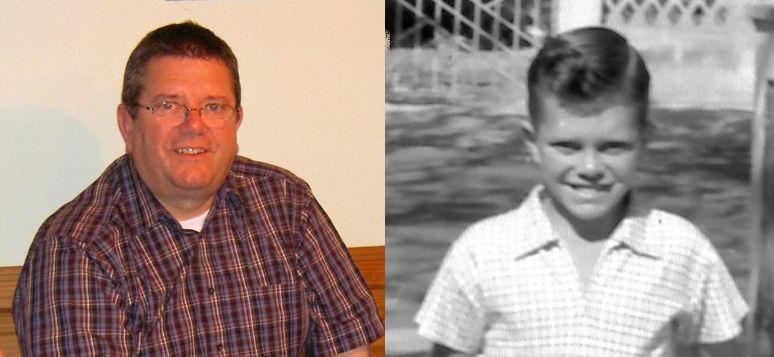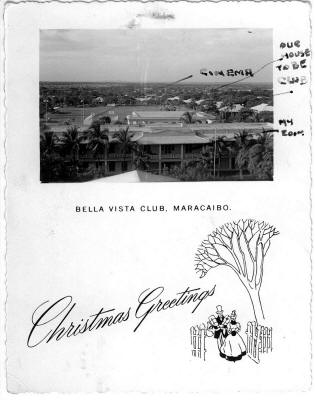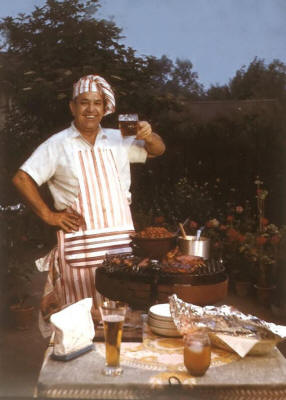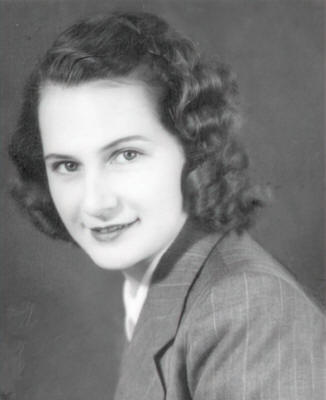|
| |
Home
 Ondas del Lago
Ondas del Lago
 Contributed Content
Contributed Content
 George
Frost George
Frost
Note: This page as originally published included many photographs.
Unfortunately, Chuck Clausen included these pictures in Adobe Flash files. Adobe
Flash is no longer supported and these photos were not recovered from internet
archives.

George Frost NOW and THEN
The photos and the wonderful “recuerdos” written on this page were
generously contributed by George Frost. Although George is now living in
England, and has been for many years now, he was originally born in Maracaibo to
an English father and Austrian mother. Because his earliest memories are of
Maracaibo & the childhood that he spent there in his youth, George has many
memories of his happy and carefree life there.
George left Maracaibo in 1959 to attend boarding school in
England. He returned various times during school holidays, finally leaving for
the last time in 1962. He has never returned.
Further down the page, read the interesting story of the SHELL cemetery & then
view the photos.
We're all extremely grateful to George for taking the time to share these
wonderful memories with all of us here.
|
Update FEB 2007
George came across this postcard greeting that shows the
Bella Vista Club. It was sent by his father to his mother who was
waiting to join him in Maracaibo before they had moved there as a
family. It was marked up by his father. As his assumption is that his
mother did not arrive in Venezuela until 1949, he believes it was sent
around Christmas 1948. It shows a point in the photo that would be their
house and his father's room. It also offers a good view of the cinema
screen.
 |
|
A Letter From George Frost
When my father passed away in 2004, I really did not know what to do
with all the photos of Venezuela that he had taken. That was when I came
across Chuck Clausen’s wonderful website. I did know then that there
were others out there who had similar memories of Venezuela, in
particular Maracaibo. So I contacted Chuck and he expressed an interest
in what I had.
So to put the photos into proper context, I was born in Maracaibo. I
have many memories as a child growing up there. I do know some of the
people in my father's photos although many mean nothing no me. That’s
where you step in: if you recognize any family or even remember my
brothers Stan and Robert or I, let Chuck have your memories. The site is
rapidly turning into a site that is an important historical record of a
life that no longer exists. But from my perspective, it was a part of my
life. If I could re-live those years, I'd go back in a heartbeat. They
were great days.
My life in Venezuela was as a child growing up in the 50’s. In fact, it
all started on 17 June 1950, when I was born. My father was responsible
for the property rented/leased or owned by SHELL. In modern terms he
would, I suppose, be a facilities manager and would be working for the
property/ estates department in Maracaibo.
Until the age of 18 months, I lived in a two story house in Las Delícias.
We then moved to Colónia Mazzei, house number 5A. I remember from an
early age that life seemed to revolve around endless parties, at 5A and
every other house on the road, the beach and the club. My impression was
that everyone in Venezuela knew my Dad Stanley (aka Stan) and my mother
Erna, who was Austrian.
| |
 |
 |
|
| |
Stan Frost |
Erna Frost |
|
I remember the house being very airy and generally quite cool due, I
suppose, to the tiled floors, though later we got air conditioning. We
had a maid who was with us from my earliest recollections to the day I
left to return to the UK and boarding school. Her Name was Dora and she
was a good friend to us. She covered my a** on many occasion when my
mother was on the war path. As a child I spent what seemed to be a
lifetime climbing trees, eating mangos, níspero, and various other
fruits. They were carefree days and anyone who grew up in Colónia Mazzei
at the same time as I lived the same lifestyle. I recall that Mrs Mazzei
would take the fruit from our guava tree to make ice cream. She also
made ice cream from a tree in her front garden that had small fruit that
we would pinch and eat - very sweet (I didn't remember the name of the
tree until Chuck mentioned that he did much the same as we did and Chuck
called it a mamón tree).
I recall the ferry that we would travel on the odd occasion, usually
with my father, across Lake Maracaibo. It was on one such occasion that
I was introduced by a Venezuelan how to eat green mangos sprinkled with
salt. Mother was not impressed, but I recall I liked it.
I remember the (raspado) ice cart pulled by a small donkey. The man
would scrape the ice, put it into a cup and add the fruit syrup of your
choice for I would imagine a locha or centimos (http://www.randytrahan.com/ocov/gen_interest_venezuelan_money.htm).
Again, Mother was not impressed and she would tell us we could die from
some terrible disease.
Across the road lived the headmaster - a Mr. Lemon (as I recollect, that
was his name). Chuck lived in the same house some years later. The wall
between the Mazzei’s and Mr. Lemon's house was a popular place to hang
out. There were two oil tanks (I think they were oil) that we would sit
on top of, having gained access via the wall which, as I recollect,
sloped down to the garden wall on the pavement. The kids in the road
were a multinational bunch - American, Dutch, and English and I seem to
recollect a Swiss or a French family (not sure). Some of them I'm still
in touch with. There were some real characters, like the family that
lived in Colónia Mazzei right down the bottom next to the wall at the
end. This chap would play bagpipes in the evening and, as I recollect,
he was quite good. He would fly his kite using his fishing rod.
The mango tree used to be home for a caterpillar that has long hair on
its back. If you stepped on one, as I did not once, but twice on
different occasions, the result was pain, a run home with legs failing
in their duty to carry you (probably trying to get attention, but I
think the screaming did that). Then followed a car race to the hospital,
an injection, and laying in bed for two days (the laying in bed bit was
okay).
How many remember the company worker fumigating the houses with DDT.
They also did the trees with the same stuff, which is when I trod on the
caterpillars.
Kites and kite-making was something we did a lot of. How we survived, I
don’t know as we would throw the stick with the string on it over what I
can only assume were the power cables and use the wire as a means of
launching the kite so as to get above the cable without getting stuck in
them. How many of you recall the small piece of paper that spanned the
kite and produced a buzzing sound whilst in flight?
One of the teachers of the school (Las Delícias) shot an alligator and
dumped it in the shower at the school. Where it was shot I have no idea.
My class was taken to see it in the shower to have a look at it. It
looked very big as its jaws were up the wall with its body in the shower
base and tail outside the shower, but undoubtedly it was not that big.
I remember that at the school was an open quadrangle, a hall where we
would do exercises, and the music lessons where we marched around.
Invariably I would get the triangle although I always wanted the drum or
tambourine.
The morning after parties, we would run around the tables drinking the
dregs (I know, but hey - I was a kid!), eating the peanuts, etc. On one
occasion I was totally out of my head by about half-past seven in the
morning (saved by Dora), my mother not finding out till some days later
on that occasion.
I recall the birthday parties, which were always excessive (although we
didn't think they were excessive at the time). If it was your party
there would be gifts from all that came. Likewise going to a party meant
taking a present. As often as not, the party would drift into the
evening as the adults came to collect their little cherubs, and stayed
for a drink or two or three and the barbeque might get fired up.
The beach and the hours spent there - I can recollect on one occasion
that we had spent the day at the beach with all the kids and the
mothers. The fathers joined us after work. The barbeque was fired up and
a great time as always was being had by all. I remember the details,
being filled in by my mother talking about it in later years as we did
re-live our days in Venezuela. The women went out for a swim and the men
folk, realizing that they were skinny-dipping, parked all the cars in
the darkness so that the headlights were pointed out to where they were
swimming and, when they exited the water, switched on the car lights. As
I recollect, I've to this day not seen so many women run back into the
sea, still separated from their bathing suits! I was far too young back
then to appreciate the delights of female nudity.
I do recall the Navy coming to town and my folks throwing a party for
them and getting to go on ships though the memories are hazy. But the
photos show more than I remember.
I remember school days that started early. Getting home around midday
for a siesta, we would sometimes sleep. Other times we would be running
around having a cup of tea whilst my father listened to the World
Service on the BBC. We would go back to school in the afternoon, do one
or two lessons, and we'd end up at the club for swimming lessons. I'm
sure it was not everyday, but it felt like it. Then we would drift into
the evenings as the adults turned up to collect their kids. Often we
would stay on at the club watching cartoons on the big screen in the
open air cinema at the club. We might then go off to the Rincón (Rincón
Borícua).
I remember that we had great times at the club pool and spent a lot of
time there. Does anyone remember the foot bridge that divided the pool
into the shallow and deep parts? We would swim under the bridge through
a narrow gap between the bridge and a low wall. It was a bit of a
squeeze. My father recounted that when the pool first opened the
footbridge had no restrictions in crossing it. But so many adults fell
into the pool on their way from one side to the other, as it was a
shortcut. I'm sure that drink had no part in their falling in. But it
was eventually fenced off - to protect the kids, you understand (see
pictures 7 & 8, the barrier/gate/fence, whatever is visible in them).
My father told me of the time that the club management put a chemical
into the water to embarrass those who would pee in the water when
swimming. This chemical would turn the water blue around them if they
peed. When the kids found out about it, there was no stopping them, so
that idea was scrapped.
I remember a revolution and soldiers in the back garden, being told to
stay indoors, thinking it was quite exciting. There seemed to be
revolutions, but only once do I remember a soldier in our garden.
I remember sports days at the sports ground and cricket on the weekend
and dad making chili con carne and rice by the truckload, big barrels
filled with ice separated by bottles of Zulia beer, bottles of Coca Cola
and Fanta - wonderful days that were so full.
I recall collecting metal bottle tops and swapping them for Disney
characters from the Zulia deliveryman, doing swaps with the other kids.
I seem to remember them all being white, don’t know if plastic had color
in those days or if it was too expensive.
A rabid dog was killed in the back garden of the very last house on the
left in Colónia Mazzei next to the waste land with a bow an arrow by an
expatriate, who did archery. My brother Robert (aka BOB) was bitten and
had to have the jabs in his stomach He later recounted his heroism in
the face of death and showed his needle marks to the other kids.
Some of the photos show the orphanage visit, and Prince Philip's visit
to Maracaibo talking to Ian McKechnie. Also in the photo is Ian’s wife
Margaret, my Dad and my mother.
How many of you recall the rain and how heavy it could be. The front
garden would be flooded to the depth of my knees, so that would be at
least a foot. The thunderstorms and lightning were always short-lived
and the air smelled so clean and fresh afterwards.
I can recount childhood memories of Maracaibo endlessly, which brings me
back to where I started. We had a wonderful life that was carefree and
very full. We had holidays in Barbados & Jamaica. When traveling home to
see the family in the UK, I could not wait to get back to Maracaibo.
Since leaving, I've never gone back. I understand that the old Colónia
Mazzei is gone now. But going back may spoil my childhood memories.
So there you have it. I hope that the photos bring back great memories
for all of you.
|
|
SHELL CEMETERY
George also relays to us the interesting story of the SHELL Cemetery.
He relates that, in the 1950's, SHELL did not repatriate the remains of
expatriate staff or their dependents if they died while they were
assigned to Western Venezuela. Instead, they were buried locally at one
of two cemeteries in Maracaibo. The second cemetery was opened when the
first one became filled.
Over the years, the second cemetery became run-down & overgrown as the
issue of ownership became unclear with the passage of time. Upon finding
out about this unfortunate circumstance in 1991, George's father
immediately began inquiries as to the proper ownership of the cemetery
in an effort to remedy this situation and to improve its poor condition.
What followed can best be fully understood by reading his father's
correspondence with SHELL on the matter, which George has graciously
agreed to share with us here. You can see his father's correspondence by
clicking here.
George is currently seeking any information available about the present
condition of the cemetery. If you have any information at all about it,
please contact George directly at
george.marac@georgefrost.org.uk
Update, August 17, 2006: George
has received a reassuring update, including recent photos, to
his inquiry about the current condition of the SHELL cemetery.
It reads: “
“Dear Mr. Frost,
“Thank you for your letter regarding the two cemeteries in
Maracaibo. Please accept my apologies for the delay in getting
back to you.
“Please find attached some recent photographs I have received
from Gabriela Tudares in the Building Facilities Department in
Venezuela. I hope they are able to reassure you that the
cemeteries are being maintained in good order. Gabriela has
assured me that there is an ongoing programme of maintenance on
the cemeteries.
“Once again, thank you for your enquiry. If you have any further
please do not hesitate to contact us.
“Kind regards,
“Richard Priestley
Customer Services- Retail”
|
|
|
Motilone Arrow Collection
One of the wonderful items that George inherited from his father was
this superb collection of Motilone bow with a variety of arrows. These
are currently mounted on the wall of his office in England. George
advises that his father exchanged the bow & arrows for a bag of salt
while on one of his many jungle trips.
|
|
